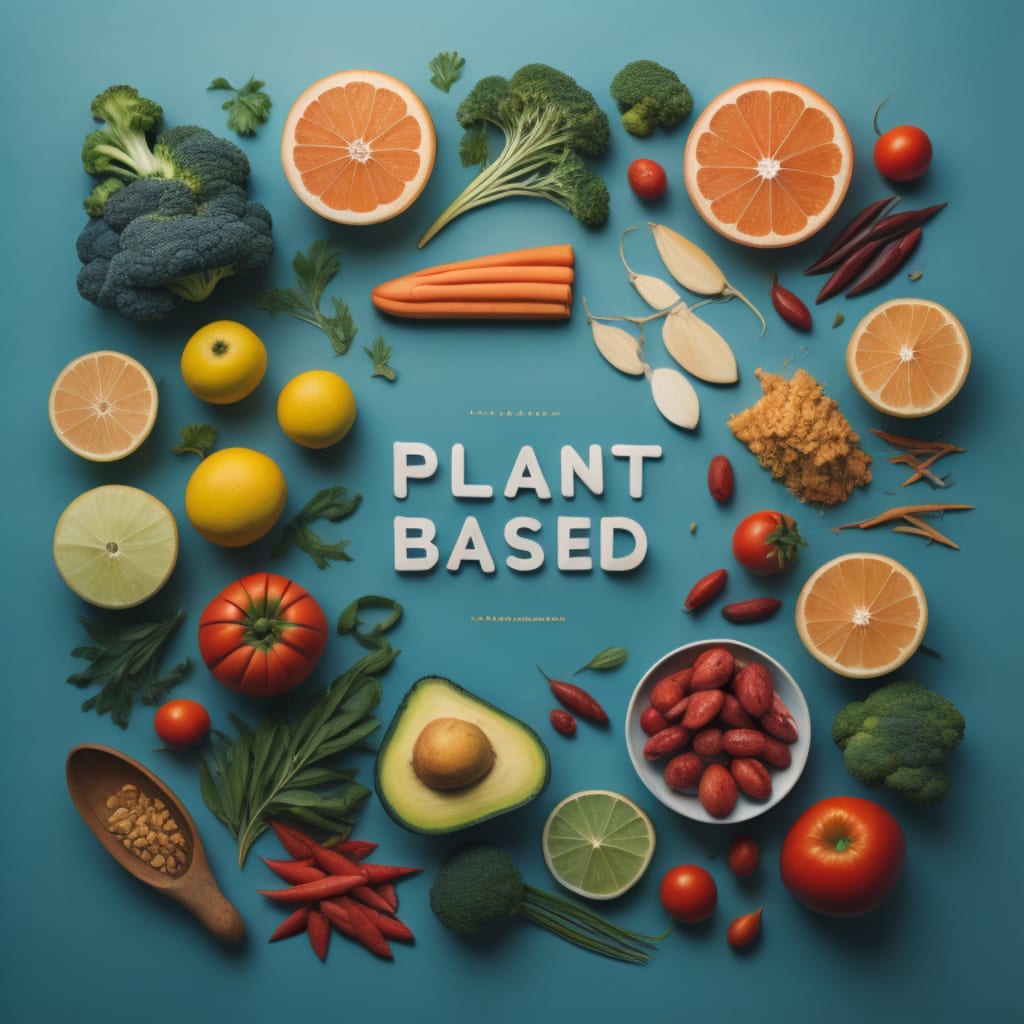Exploring the World of Plant-Based Diets
Is Going Vegan Right for You?

In recent years, plant-based diets have gained significant popularity as people seek healthier and more sustainable dietary choices. The term "vegan" is often associated with plant-based diets, as it refers to individuals who exclude all animal products from their diet and lifestyle. While veganism is one type of plant-based diet, there are various approaches that incorporate more plant-based foods while still allowing for some animal products. If you're considering adopting a plant-based diet or going vegan, it's essential to understand the potential benefits, challenges, and considerations involved.
The Benefits of Plant-Based Diets
Plant-based diets have been linked to numerous health benefits. By focusing on whole, unprocessed plant foods such as fruits, vegetables, whole grains, legumes, nuts, and seeds, these diets tend to be rich in essential nutrients, fiber, and antioxidants. Some potential benefits of plant-based diets include:
Improved Heart Health: Plant-based diets have been associated with a lower risk of heart disease, high blood pressure, and high cholesterol levels. The abundance of fiber, healthy fats, and phytochemicals in plant foods can help promote heart health.
Weight Management: Plant-based diets are typically lower in calories and higher in fiber, which can support healthy weight management. The emphasis on whole, nutrient-dense foods can also help reduce cravings and promote satiety.
Reduced Risk of Chronic Diseases: Studies have shown that plant-based diets may help reduce the risk of chronic conditions such as type 2 diabetes, certain types of cancer, and obesity. The high intake of antioxidants and phytochemicals found in plant foods may play a role in disease prevention.
Environmental Sustainability: Plant-based diets are more environmentally sustainable compared to animal-based diets. The production of plant foods generally requires fewer resources and generates fewer greenhouse gas emissions, making it a more sustainable choice for the planet.
Ethical Considerations: Many people choose plant-based diets for ethical reasons, as they aim to reduce animal suffering and promote animal welfare. By eliminating or reducing the consumption of animal products, individuals can align their dietary choices with their values.
Challenges and Considerations
While plant-based diets offer numerous benefits, it's important to be aware of potential challenges and considerations:
Nutrient Deficiencies: Eliminating or reducing certain animal products from your diet can increase the risk of nutrient deficiencies, particularly for nutrients like vitamin B12, iron, zinc, calcium, and omega-3 fatty acids. It's crucial to ensure you're obtaining these nutrients through fortified foods or supplements, as needed.
Meal Planning and Preparation: Adopting a plant-based diet may require more meal planning and preparation to ensure a balanced intake of nutrients. It's important to learn about plant-based protein sources, cooking methods, and recipe ideas to create diverse and nutritious meals.
Social Considerations: Following a plant-based diet may present social challenges, especially in social gatherings or when dining out. It's helpful to communicate your dietary preferences with others and be prepared to make accommodations when needed.
Personal Preferences: It's essential to consider your personal food preferences and lifestyle when choosing a plant-based diet. Some individuals may thrive on a fully vegan diet, while others may find a flexitarian or vegetarian approach more suitable.
Health Conditions and Individual Needs: If you have specific health conditions or nutritional needs, it's important to consult with a healthcare professional or registered dietitian before making significant dietary changes. They can provide personalized guidance to ensure your nutritional needs are met.
Is Going Vegan Right for You?
Deciding whether to go vegan or adopt a plant-based diet is a personal choice. It's essential to consider your health goals, ethical beliefs, environmental concerns, and individual preferences when making this decision. Here are some additional factors to consider:
Start with Small Steps: Transitioning to a plant-based diet doesn't have to happen overnight. You can start by incorporating more plant-based meals into your routine or by gradually eliminating certain animal products. This approach allows you to adjust to the changes and find a balance that works for you.
Seek Nutritional Guidance: If you're considering a vegan diet, it's beneficial to seek guidance from a registered dietitian who specializes in plant-based nutrition. They can provide personalized advice, ensure you're meeting your nutritional needs, and help address any concerns or challenges you may have.
Experiment with Variety: Plant-based diets offer a wide range of options, so don't be afraid to experiment with different fruits, vegetables, grains, legumes, nuts, and seeds. Try new recipes, explore ethnic cuisines, and discover the abundance of flavors and textures that plant-based foods have to offer.
Stay Informed: Stay up to date with reliable sources of information on plant-based nutrition. Learn about the nutrients your body needs, the potential sources of those nutrients in a plant-based diet, and any supplementation recommendations. Being informed will empower you to make well-informed choices.
Listen to Your Body: Pay attention to how your body responds to a plant-based diet. Everyone is unique, and what works for one person may not work for another. Notice any changes in energy levels, digestion, mood, and overall well-being. Adjust your diet as needed to ensure it aligns with your body's needs.
In conclusion, exploring the world of plant-based diets and considering whether going vegan is right for you is an exciting and personal journey. By focusing on whole, unprocessed plant foods, you can experience a multitude of health benefits, contribute to environmental sustainability, and align your dietary choices with your ethical values. However, it's important to be aware of potential challenges and consider your individual needs when embarking on this path. With proper planning, education, and support, a plant-based diet can be a nourishing and fulfilling way of eating that supports your overall health and well-being.
References:
Craig, W. J., & Mangels, A. R. (2009). Position of the American Dietetic Association: vegetarian diets. Journal of the American Dietetic Association, 109(7), 1266-1282.
Tuso, P. J., Ismail, M. H., Ha, B. P., & Bartolotto, C. (2013). Nutritional update for physicians: plant-based diets. The Permanente Journal, 17(2), 61-66.
Melina, V., Craig, W., & Levin, S. (2016). Position of the Academy of Nutrition and Dietetics: vegetarian diets. Journal of the Academy of Nutrition and Dietetics, 116(12), 1970-1980.
Lea, E. J., & Crawford, D. (2020). The Impact of Plant-Based Diets on Body Composition, Cardiometabolic Risk Factors, and Dietary Intake in Adults: A Systematic Review and Meta-Analysis of Randomized Controlled Trials. Advances in Nutrition, 11(2), 442-460.





Comments
There are no comments for this story
Be the first to respond and start the conversation.